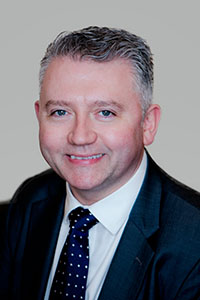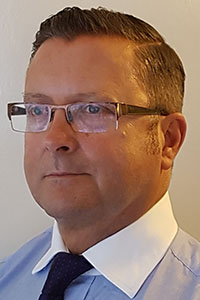To join our forums simply log in to MyCISI and select which forums you would like to be a part of
In June, the CISI Wealth Management Forum ran a webinar featuring a panel of senior executives exploring opportunities for developing wealth management businesses as we emerge from the Covid-19 pandemic. In this article we examine some interesting insights shared by the panel: David Howard, Chartered FCSI, head of client services and proposition at Rathbones; Glenn Murphy ACSI, then chief operating officer at Stonehage Fleming, now chief operating officer at Multrees Investor Services; and Steve Dyson, director at IAWMC Consultants.
The past 18 months have been difficult for everyone, but what have we learnt about our businesses while living through the pandemic? Have we improved processes, strengthened relationships with clients and colleagues? What will we take forward as we emerge from the pandemic?
Our clients
During the pandemic, firms have noted their clients have been more engaged than before and have been contacting them for reassurance in an uncertain world. This is good news for client retention, but it has proved more difficult to attract new business.
 For some firms, the pandemic has created opportunities – for example to wean staff and clients off paper.
For some firms, the pandemic has created opportunities – for example to wean staff and clients off paper.
As David Howard (pictured right) observes:
Clients have embraced new forms of communication and many are now taking valuations and tax packs electronically and helping to save the planet. More clients are now accessing notes and statements via our web portal and we have produced communications materials for use in client discussions.
Glenn Murphy (pictured below right) echoes those sentiments:
We have seen a lot of loyalty from clients over the past 18 months. In the short term, we expect that to continue, but will be looking to grow beyond that. We will focus on client centricity – our strategy should always be viewed through a client-centric prism and we will gather feedback from relationship managers. There will be a paradigm shift over the next few years.

Interacting with clients is changing too. Many clients have made the transition from in-person meetings to video conferencing, and screen sharing has proved useful. These virtual meetings are an efficient use of time for both client and relationship manager.
Virtual events have been well received too and there are no restrictions on numbers of attendees or space considerations.
Glenn acknowledges the importance of new technology:
Wealth managers must invest in technology and keep multiple channels open post pandemic. We expect to see a hybrid approach to client comms going forward.
Developing new businessThe panellists acknowledged that prospecting during the pandemic has not been easy but they are winning business and their approach to business development is changing as a result of it. Over the past 18 months, clients and prospects have preferred to meet locally or virtually rather than travelling to the City as virtual meetings are safer and more cost and time efficient.
Many new clients come through referrals so it is critical to maintain contact with the firm’s referral network of investment professionals and to ensure they remain advocates.
The significant role of new technology in helping to attract and retain new clients is explored in later sections.
The role of physical offices and presence
Glenn sees an important but modified role for the office post pandemic:
Some key staff have worked in the office, but most have worked at home. As we emerge, we will review the purpose of the office. Client centricity, collaboration, mentoring, training and team building opportunities will become focus of office activity.
A recent EY survey highlights research into the best working model post pandemic – three days in the office, two days at home seems to be the optimum model.
This is an opportunity to realise the investment in technology and operational resilience committed over the past decade, to ensure the firm has a robust remote infrastructure that scales and that they have client-centric, multi-channel communication methods. It is also worth noting that the FCA has operational resilience in its crosshairs over the coming year.
Technology
 In his role as a consultant, Steve Dyson (pictured right) advises firms on new technology:
In his role as a consultant, Steve Dyson (pictured right) advises firms on new technology:
Technology should be an enabler, not a driver – firms need to ensure their tech works for them in the best possible way. During the pandemic, technology has moved on.
Working from home has brought a whole new set of cyber security issues to the fore. Embracing cloud tech has enabled home working to be a more accepted practice than just a few years ago. As before, cost efficiency is a big driver. The increase in availability of application program interfaces enables different solutions to integrate and has enabled firms to design ecosystems that can talk to one another – part of the digitalisation strategy, mixing and matching components, all working in harmony.
Firms have been focused on enhancing the client experience and this will continue post pandemic. A well designed, functionally rich client portal is vital as is the capability to design reports. Interactive documents is a recent innovation which enable clients to drill into figures and look behind the ‘headline’ numbers.
Innovation is always welcome, especially when it helps to improve client communications and experience. Client onboarding has always been a complex process, but acceptance of electronic signatures will be a game changer. The government could help by backing innovation in financial services.
The panel discussed the limitations of the virtual conferencing platforms
David:
Learnt communication is more than just words. We cannot underestimate the value of physical proximity, of being in the same room. Under the circumstances, Zoom wasn’t a choice, it was a necessity, but as we emerge, it becomes another medium for communication which we can choose to deploy or not and we will see a blend of physical and virtual meetings. The human touch is important to some services.
Glenn:
It is important to recognise that necessity will become choice, and developing a rapport, knowing your client and the soft issues around them and their lives, talking to them about non-investment matters, face-to-face is key to building that relationship and will remain so.
Younger clients will be looking for virtual interaction and firms must make available the whole spectrum of comms, paying particular attention to the needs of vulnerable clients.
Steve:
Technology is a necessity. Some clients have grown used to meeting virtually and prefer it, others would rather meet face-to-face. Younger clients value an omnichannel approach to communications.
Our people
When discussing staff’s response to the pandemic, David praised his team who rose to the occasion, showed flexibility, resilience and patience and were soon operating effectively at home. Theirs is a ‘people’ business relying heavily on human proximity and interaction between colleagues and with prospects, clients and professional intermediaries. Much of that interaction is conducted face-to-face, which helps engender trust and confidence and is a key part of the service.
David:
Our staff are our most valuable asset and it is important to ensure that none of them are left feeling alone or isolated. Managing staff in a virtual world is undoubtedly more difficult and some of our new joiners have worked for the firm for months without physically meeting their colleagues.
We have a wellness program, a real-time dialogue with all staff, checking on their wellbeing. We have been running team virtual drinks sessions, yoga lessons and mindfulness sessions, and competitions for staff and their families have been popular and well attended.
The panellists agreed that working from home has brought other issues – staring at a screen for hours is not good and time saved by not having to commute can easily be consumed by work. Staff are encouraged to take frequent breaks and to take some exercise, to help them relax and refocus.
Looking to the future …
The panellists agreed that life and work will never be the same as before. Working from home has broken the traditional mould of office-based working and we have a once in a lifetime opportunity to reset and gain the benefits of both worlds.
Many firms will adopt a hybrid working pattern tailored by function and business need. The five-days-a-week commute will be gone, helping to reduce firms’ carbon footprints. Clients will have the choice of virtual or face-to-face meetings but our preference would be a face-to-face session at the outset of a new client relationship. Many events will be hybrid, to ensure firms continue to reach the largest possible audience, and they can be accessed on demand. There will be further investment in digital capabilities, website and portal enhancements and clients will be encouraged to embrace digital communications and give up paper, which dovetails with the sustainability agenda. Also enhancing client and adviser digital onboarding journeys with a clear focus on user experience.
What have we learnt from the lockdown?
Here is a summary of key points highlighted by the panellists:
- Every cloud has a silver lining and there has been some good to come out of these challenging times.
- Maintain a regular personal and professional dialogue with clients and professional contacts.
- Take care of your staff – they are your most valuable asset.
- Firms should try to envisage and plan for the unexpected and reduce dependency on potential single points of failure, including physical location.
- Firms need to be prepared to be flexible, to adapt at pace and adopt a ‘can do’ attitude, embracing technology to augment human interaction and benefit the user experience as well as reducing cost and risk.
- Onboarding, reporting, communications and engagement can all be enhanced by leveraging technology. Look at artificial intelligence and consider how it could help you to improve operational efficiency.
- Consider the role of physical offices and presence – what can the ‘power of the office’ bring?
- Consider intergenerational wealth and how your firm can help its clients with this important issue. How do you attract and retain young investors for the longer term?
- Emerging from the pandemic may be the ideal time for firms to think about what has and hasn’t worked well, what will drive their business model for the next five years, and to review and redesign their target operating models.
Over the past 18 months, we have experienced and learnt a lot about our clients, our firms and ourselves. We will return to a more settled ‘business as usual’ way of life and things will be better, but we must make sure we don’t lose sight of those experiences and that they inform our new post-pandemic thinking and planning.